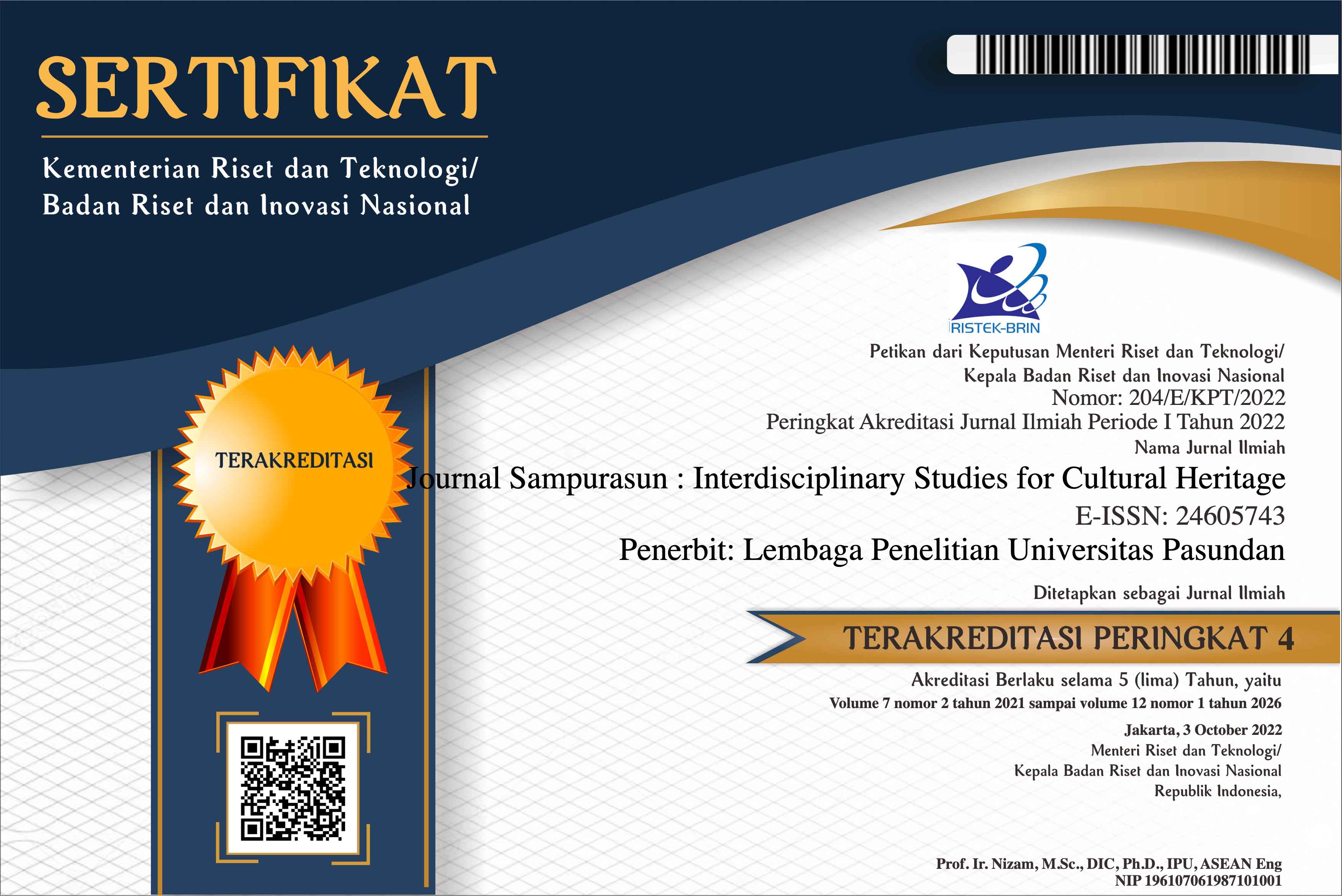HUMAN RIGHTS IN THE PERSPECTIVE OF ADAT LAW
DOI:
https://doi.org/10.23969/sampurasun.v5i2.1861Keywords:
Human Rights Violations, Criminal Justice System, Justice.Abstract
The establishment of Law Number 26 of 2000 concerning the Human Rights Court aims to deal with human rights violations in Indonesia to protect human rights. However, in practice the handling of human rights violations always creates differences of opinion between institutions / human rights enforcement apparatuses, both the National Human Rights Commission, the Public Prosecutor and the competent authorities in addressing human rights violations that occur in Indonesia, which can be seen from the process of several human rights violations from the process investigation. Based on these problems, conducted a descriptive analytical study using a normative juridical approach, namely testing and reviewing secondary data with the library research stage and field studies, then the data were analyzed by qualitative juridical analysis. The results of the study indicate that the concept of handling human rights violations based on the principle of justice through the criminal justice system in Indonesia is carried out by the integrated criminal justice system. That in order to integrate the criminal justice system, one of them is by providing full authority to the National Human Rights Commission in handling cases of human rights violations both at the stage of investigation, investigation and prosecution.
Downloads
References
R. Indonesia, “Undang-Undang Nomor 39 Tahun 1999 tentang Hak Asasi Manusia,” 2012.
H. A. Manusia, Bahwa Hak Asasi Manusia Merupakan Hak Dasar Yang Secara Kodrati Melekat Pada Diri Manusia, Bersifat Universal Dan Langgeng, Oleh Karena Itu Harus Dilindungi, Dihormati, Dipertahankan, Dan Tidak Boleh Diabaikan, Dikurangi, Atau Dirampas Oleh Siapapun; 2000.
Marwan Effendy., Sistem peradilan pidana : tinjauan terhadap beberapa perkembangan hukum pidana, Cetakan . Jakarta: Jakarta : Referensi, 2012., 2012.
U. Nations dan G. Assembly, “United nations convention on the prevention and punishment of the crime of genocide,” The International Journal of Human Rights, vol. 4, no. 3–4, hal. 336–340, 2000.
Muladi, Kapita selekta sistem peradilan pidana. semarang: Badan Penerbit, Universitas Diponegoro, 1995.
hans kelsen, General Theory of law & state. new runswick (USA) and london (UK): harvard university press, 2011.
Sumber Non elektronik
Bagir Manan, Perkembangan Pemikiran dan Pengaturan HAM di Indonesia, Alumni, Bandung, 2001.
Husen Harun M., Kejahatan dan Penegakan Hukum Di Indonesia, Rineka Cipta, Jakarta, 1990..
Kartini Sekartadji, Perkembangan HAM dalam Perspektif Global, Semarang, BP Undip, 1999.
Marwan Effendy, Sistem Peradilan Pidana, Tinjauan Terhadap Beberapa Perkembangan Hukum Pidana, Referensi, Jakarta, 2012.
Muladi, Kapita Selekta Sistem Peradilan Pidana, Badan Penerbit Universitas Diponegoro, Semarang, 1995.
Romli Atmasamita, System Peradilan Pidana Perspektif Eksistensialisme dan Abolisionism, cet. II (revisi), Binacipta, Bandung, 1996.
Rony Hanitijo Soemitro, Metodologi Penelitian Hukum dan Yurimetri, Ghalia Indonesia, Jakarta, 1982.
Rusli Muhammad, Sistem peradilan Pidana Indonesia, UII Press, Yogyakarta, 2011.
Sigit Riyanto, Penegakkan HAM Di Indonesia Beberapa Catatan Kritis, Majalah Mimbar Hukum No.38/VI/2001 FH-UGM, Yogyakarta, 2001.
Soediman Kartohadiprodjo, Pancasila sebagai Pandangan Hidup Bangsa Indonesia, Gatra Pustaka, Jakarta, 2010.
Yahya Harahap, Pembahasan Permasalahan Dan Penerapan KUHAP: Penyidikan dan Penuntutan, Sinar grafika, Jakarta, 2003.
Yesmil Anwar dan Adang, System Peradilan Pidana (Konsep, Komponen dan Pelaksanaannya Dalam Penegakkan Hukum di Indonesia), Widya Padjadjaran, Bandung, 2009.
Downloads
Published
Issue
Section
License
Copyright Notice
Authors should not withdraw their submitted papers because the withdrawal wastes voluntary works devoted by an associate editor and reviewers. But, we accept the withdrawal of a submitted paper if authors have unavoidable reasons. In the event that a manuscript is to be withdrawn from submission to Sampurasun Journal, a letter must be sent to the editorial office requesting withdrawal by e-mail (sampurasunjournal@unpas.ac.id) with its scanned PDF file, before the notification of acceptance for publication.
The withdraw request letter must include the following information. Paper ID, Paper title, Authors names, Reason why the paper must be withdrawn, and Date and signatures of all the authors (or signature of the contact author).
If only the contact author signs the letter, he/she must obtain the agreement of the withdrawal from all the other authors and the letter must include the description that all the other authors agreed the withdrawal. The journal will not withdraw a manuscript from peer review until such a letter has been received. Authors must not assume their manuscript has been withdrawn until they have received appropriate notification from the editorial office. Withdrawal of a manuscript subsequent to acceptance for publication will only be granted in the most exceptional of circumstances.
After the paper is accepted for publication, the withdrawal is not permitted in principle. The authors must always pay the charge even if the withdrawal is permitted. Any request of withdrawal that does not follow the above procedure is treated as invalid. If illegal submission, e.g., plagiarized or duplicate submission, is found for a paper, the withdrawal of the paper will never be permitted and the authors will be punished based on the rule. It is not acceptable practice to withdraw a manuscript in the event of acceptance at another journal. This constitutes dual submission. The editorial office of the other journal will be notified of your actions. In such circumstances Sampurasun ISCH may chose to impose appropriate punitive action subject.
Withdrawal Penalty
Author is not allowed to withdraw submitted manuscripts, because the withdrawal is waste of valuable resources that editors and referees spent a great deal of time processing submitted manuscript, money and works invested by the publisher. If author still requests withdrawal of his/her manuscript when the manuscript is still in the peer-reviewing process, author will be punished with paying $200 per manuscript, as withdrawal penalty to the publisher. However, it is unethical to withdraw a submitted manuscript from one journal if accepted by another journal. The withdrawal of manuscript after the manuscript is accepted for publication, author will be punished by paying US$500 per manuscript. Withdrawal of manuscript is only allowed after withdrawal penalty has been fully paid to the Publisher. If author don't agree to pay the penalty, the author and his/her affiliation will be blacklisted for publication in this journal. Even, his/her previously published articles will be removed from our online system.


















